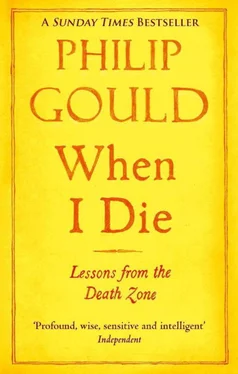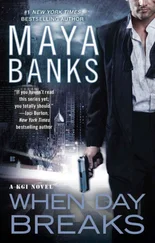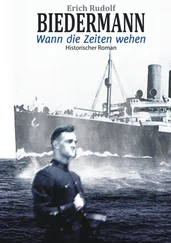Next I saw the NHS surgeon I had decided not to use. He was emphatic. The wrong operation had been done, too few lymph nodes had been removed, and I should have had a full resection entered through the ribs. He also said, for good measure, that my wound would take another four to six weeks to heal, and that I had a massive hernia, the wall of my stomach having effectively collapsed as a result of the infection and the open wound. Fixing it would require another, quite major operation.
This confused and frightened me but my experience was not untypical. Medical opinion is rarely unanimous; there are often differences, sometimes small, sometimes big. I told Murray what the surgeon and the oncologist had said and a fierce transatlantic email battle ensued. Murray was angry, certain that he was right. It felt like the revenge of the British. I backed Murray.
I liked the Marsden the moment I went into it. It is warm, friendly and welcoming, and looks and feels efficient. I had found that I preferred hospitals solely dedicated to cancer because of the shared sense of experience and purpose. Every patient is in the same boat, and every member of staff understands that.
After a while the Marsden became like home for me. Culturally it is a very long way from Memorial Sloan-Kettering which is obsessive, functional, populated by large numbers of outstanding consultants and clinicians, confident in its own excellence, relentlessly storming the cancer barricades.
The Marsden is small, but still manages to be rambling. It has an implicit philosophy that beating cancer is important but so is the quality of life of those involved in the struggle. It may not have the relentless consistency of Memorial Sloan-Kettering but, with its numerous world-class consultants, it has a kind of understated brilliance that often equals anything Sloan-Kettering has to offer.
It can be frustrating – internal communication is far from perfect – but its merits massively outshine any defects it might have. The Marsden is, of course, an NHS hospital, and although it receives 30 per cent of its revenue through private patients (of which I was one), this does not fundamentally affect the character of the institution.
Patients in the United States probably feel more empowered than they do here, and they are probably treated with more efficiency, but the culture at the Marsden is warmer, less transactional and much more egalitarian.
Professor David Cunningham is a world-leading oncologist and was in fact primarily responsible for the development of the MAGIC trial which has saved and extended so many lives. When we went to see him in early June he was wary. I had arrived at the Marsden in mid-treatment, after rejecting it for a hospital in the United States and chemotherapy in Harley Street. I suspected that he did not know quite what to make of this, and that he was not hugely impressed by our choices.
Though professional and obviously highly competent, David was reserved rather than warm at this first meeting. Impressions were deceptive because I was later to learn that he is a genuinely warm figure with an impressive capacity to inspire, but he reveals his strengths slowly. He has the knowledge and the skill to meet the moment: the right advice or the right insight pops out of him at just the right moment.
David was gracious enough to concede that Sloan-Kettering was an excellent hospital and that if I had to be given chemotherapy by anyone in London, the best person to take care of it would be Maurice Slevin. This was generous of him, but I knew I had some work to do.
He slightly changed my chemotherapy protocol, moving the pill capecitabine from two weeks out of three to a continuous daily intake. I was worried that I was not to have radiation as Maurice suggested; he said that he would not recommend it.
I asked him what my life chances were. He would not commit himself. He just said they were good. I left, I am sure, more impressed with him than he was with me.
I started my post-surgical chemotherapy and felt confident. I had done it before and would do it easily again. Thus I made one of the common mistakes with cancer, which is to take things for granted.
Although a little slower than it had been with Maurice, the process was efficient, and the nurses excellent. We arrived at nine and left at about five. It was a long day but manageable.
But when I got home it all felt different.
The first time around my body had easily absorbed the chemotherapy, but this time I felt its presence more acutely, my body suffused with chemicals. My feet and fingers tingled painfully, making it completely impossible to touch anything from the fridge, and after a while I felt almost controlled by the chemicals flowing through me. It was as though the sensation of the cold cap that I hated so much was now being applied to the rest of my body.
The challenge of chemotherapy is that it engulfs you; it is in you, in a way that is totally different from the pain and discomfort of surgery. It is possible to construct a mental barrier between your consciousness and the effects of surgery, but with chemotherapy any such barrier disappears. You fuse with your treatment, your blood becoming a kind of poison that reaches every part of you.
For the next couple of days the steroids kept me going but as the weekend developed I felt an acidic taste start to grow at the back of my throat, which led inevitably to sickness and vomiting. It became hard to take the pills, and harder still to eat. And my body felt distressed, as though I was permanently seasick. Then, as week three arrived, these difficulties eased somewhat and I began to relax.
The second cycle, however, proved much worse. The acid did not just enter my throat, it consumed it. The vomiting worsened and followed almost every attempt to eat. Getting each pill down was an ordeal and I would sit in a chair by the window, forcing the pills down one after another in a process that took the best part of an hour.
I was not living life in terms of days or hours but minutes, getting by almost second by second. This is the reality of the cancer fight: not some massive heroic battle but a thousand small skirmishes, tiny victories, winning the war one pill, one drink, one minute at a time. The courage of the small.
I slouched into my sofa, just fighting to get through it all, staring ahead, not able to eat, to talk much, even really to move. Gail later said that this was the worst time for her, with me lying white-faced and immobile, staring blankly ahead, a ghost.
The Marsden, quite understandably, wanted to reduce my chemotherapy protocol to make it slightly easier to tolerate. Determined not to compromise with my cancer in any way, I would not do it. But I was on the edge.
Things just kept getting worse. For the only time in the whole cancer process my spirits really began to sag. I was becoming a basket case.
Margaret McDonagh, the indomitable former General Secretary of the Labour Party, called. ‘The chemotherapy is beating me,’ I said. Margaret, who had always been the steel at the heart of New Labour, was clearly offended by this display of weakness and almost yelled at me, ‘You have got that the wrong way round, Philip. The chemotherapy is not beating you, you are beating the chemotherapy.’
I was so terrified of her that I had no option but to start fighting back.
David Blunkett called, commanding me to be strong, insisting that nothing should stop me. When David spoke it was with a power that was almost visceral. You could feel the years of adversity that he had overcome, the courage that he had shown. He certainly gave me strength.
By this time I had an array of anti-nausea drugs that could fill a small pharmacy, with new ones added almost on a daily basis. But they were not working.
One day, a Saturday, I felt in the early evening that I was losing sensation in my right arm, then my left, and soon my neck, face and mouth. I was gradually becoming paralysed. I started to panic, sure I was having a heart attack or stroke.
Читать дальше












